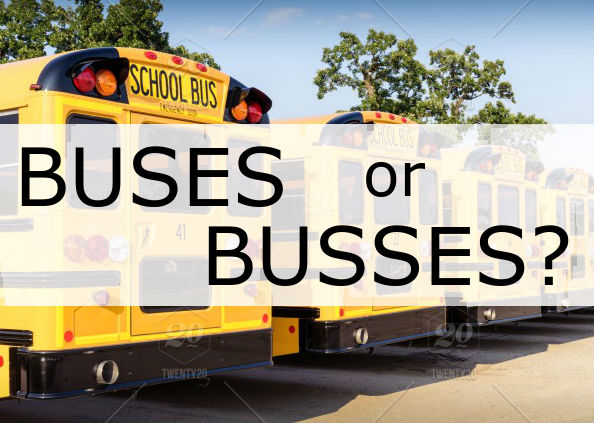BUSES is the preferred plural of the word “bus” in modern English. It’s counterpart, “busses” is considered a secondary spelling, and has been such for at least a century.
The word “bus” arose in the 1800s as an abbreviation of the word “omnibus” (“for all” in Latin). It was spelled both “bus’ and “buss” for many decades, so the plurals “buses” and “busses” were also debated. By the 1900s, however, “bus” and “buses” had gained clear dominance.
That being said, the word “buses” is a little odd. It looks like “fuses” but doesn’t rhyme with “fuses.” Even the word “abuses” doesn’t rhyme. Likewise, words that do rhyme with “bus” tend to have a double -s, likes “fuss/fusses” and “truss/trusses.”
Notably, Merriam-Webster considered “busses” the plural of “bus” up until the early 1960s, though it seems other dictionaries did not. But even that was problematic, because there is also another real word, “buss” that is a synonym of “kiss” (both a noun and a verb.) This meaning of “buss” is considered an archaic and informal word nowadays because we don’t really use it.
Therefore, BUSES is the standard spelling for writers and editors in all main varieties of English, so be sure to use BUSES when making the word plural.

Need help with regular and irregular words? We can help! Use GrammarPlanet — it’s FREE!
